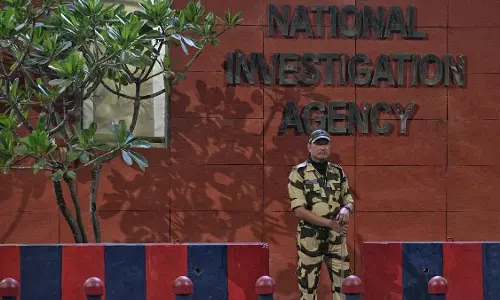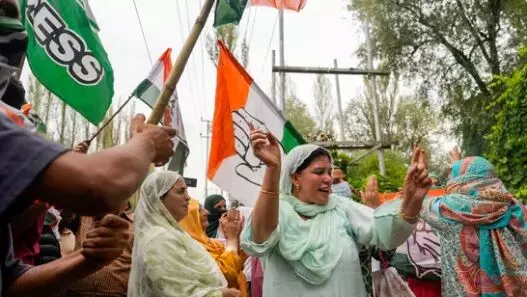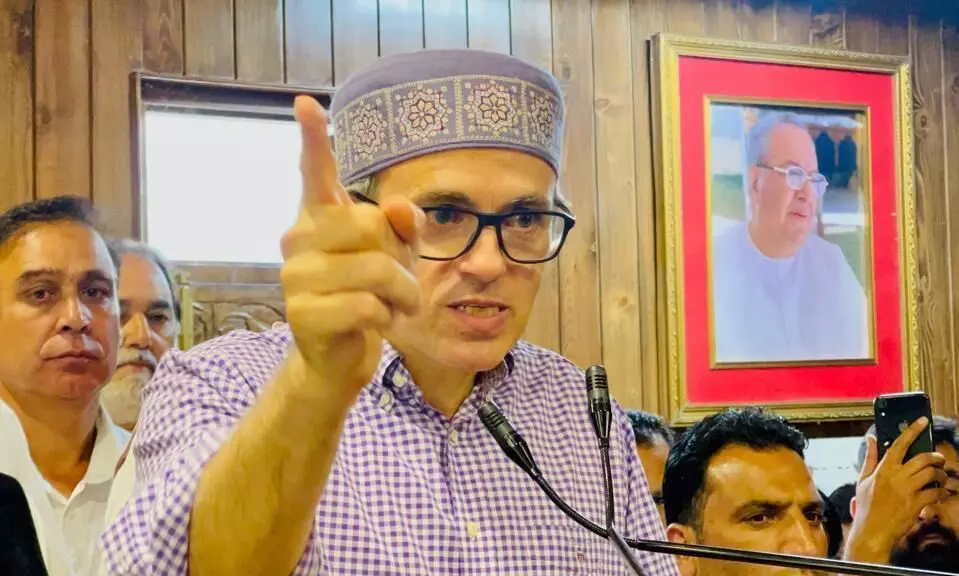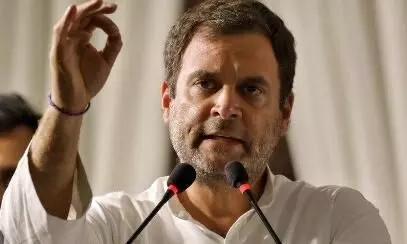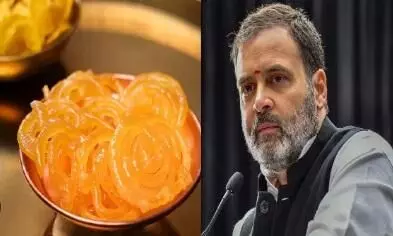
The lessons from the assembly elections
text_fieldsThe results of assembly polls in Haryana, and Jammu and Kashmir can be seen in a sense as the continuation of Lok Sabha elections. They give hope and concern for both ruling NDA at Centre and Opposition India bloc. Getting a third term in Haryana nevertheless in the strong presence of the Congress in the state is an achievement for the BJP. But the failure of the political experiment in Jammu and Kashmir is a disappointment for them. While the India bloc-led alliance created history in Jammu and Kashmir, the Congress lost a golden opportunity in Haryana. Assembly polls in Jammu and Kashmir were held after ten years. In the past ten years the country went through unparalleled political situations. The people of Jammu and Kashmir clearly recorded their feeling towards the ebullient times in ballot. No party pulled off absolute majority in the 2014 assembly polls held in five phases. The government was formed in the state through an unusual alliance between the PDP with 28 seats and the BJP coming in the second position winning 25 seats. This alliance led to new political uncertainties. A year after coming into power, Chief Minister Mufti Muhammad Saeed died. His daughter Mehbooba Mufti took over the post. Right in the beginning it was a coalition government with no sense of harmony. Meanwhile, fierce clashes were reported in the valley following the killing of Hizbul Mujahideen leader Burhan Wani. The public life in the region became chaotic. After some BJP leaders took out a rally supporting those accused of raping and killing the girl in Kathua, Mehbooba Mufti ended the alliance, tendering her resignation. Governor Satyapal Malik unilaterally dissolved the assembly in November 2018 despite having the prospect of a coalition government excluding the BJP. Later, there came in President's rule. The valley plunged into complete uncertainty the next year after withdrawal of Kashmir's special status. The BJP’s moves since 2014 have been part of its master plans to capture Jammu and Kashmir.
The division of Parliament-Assembly constituencies was part of this game-plan. The India bloc could effectively counter these moves in this election. When the National Conference and the Congress worked in tandem, the tactics of the BJP fell through. The BJP got 29 seats where it had won two seats in the Parliament. On the other hand, the India bloc can be considered coming to power with an absolute majority. The NC-Congress alliance won close to 50 seats, even if considering the five nomination seats alongside the 90 assembly constituencies. A few independents are sure to join them. It should not be overlooked that those who deserted the secular alliance trying their luck for power tasted defeat in the valley. Not only Mehbooba Mufti but Ghulam Nabi Azad who left the Congress to launch a new party is also left red-faced.The people of Kashmir also rejected political experiments in ‘independent roles’. When the long awaited opportunity came, the people of Jammu and Kashmir turned to the secular alliance as the solution. This democratic spirit of the valley is exemplary and promising.
The beautiful sprouts of a democracy similar to the one in Jammu and Kashmir should have emerged in Haryana as well. Statistics show that the Congress in Haryana would have been strong enough to reach an absolute majority had it not been for the infighting within the party. The inherent internal weaknesses and lack of planning led to its failure. In the Lok Sabha elections Congress has won half of the ten seats in Haryana gaining 43 percent vote, while the BJP won 46 percent. Despite the gap of 12 seats between the two parties in the assembly elections, the difference in vote share is less than one percent. It is noteworthy that the Congress garnered as many votes as the BJP did, despite the party facing rebels and the Aam Aadmi Party, which worked with it in the Lok Sabha polls, contesting on its own. In other words, the base of the party is still strong. The party leadership has failed miserably to set it in motion systematically. Winning close to 60 seats would not have been impossible for the party, if it functioned better. The official candidates trailing behind rebels and independents in some constituencies underscores the party’s failure in assessing the situation. On the other hand, the BJP has come up smiling after having done detailed planning assessing the conditions of each constituency. Another highlight this time is the complete collapse of JPP, which had won ten seats last time and became a decisive presence in the assembly. It can be assessed that the 14 percent vote of the JPP flowed equally into the BJP and the Congress. Even then, the BJP gained an additional growth of only three percent. Congress, on the other hand notched up 11 percent growth. In short, beyond the technicalities of the election results, Jammu and Kashmir and Haryana have declared to be ultimately secular. If united, the secular alliance can easily outwit the saffron brigade. Because of this reason, these assembly elections are a continuation of the last Lok Sabha elections. The country and the people want change, only their leaders don't realise it.





